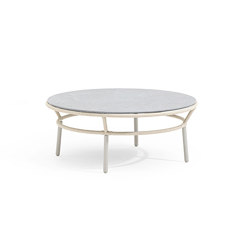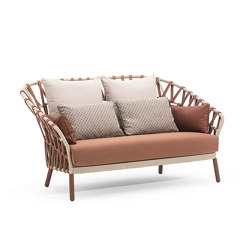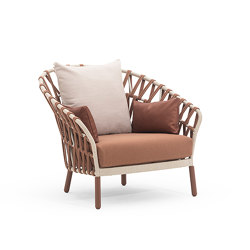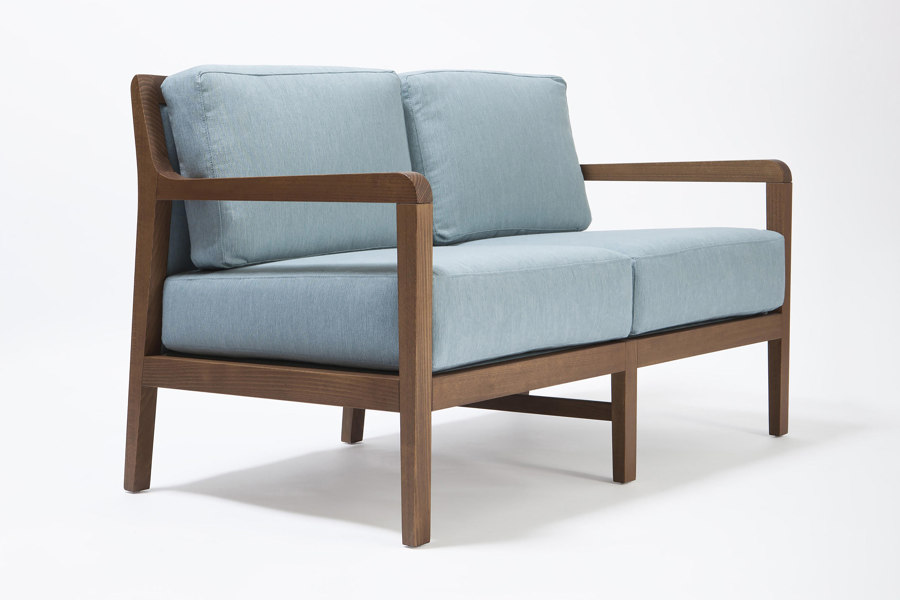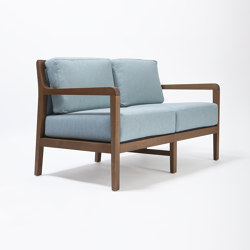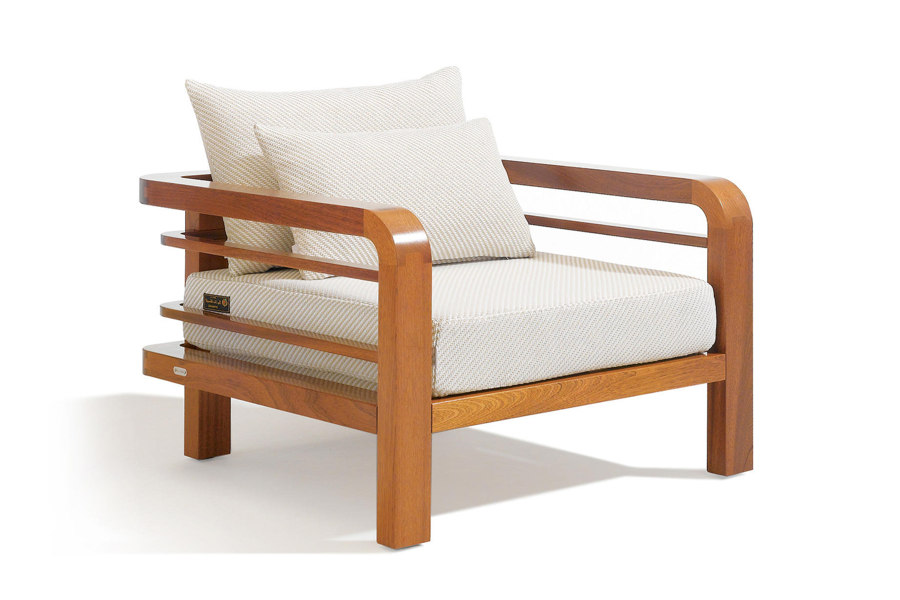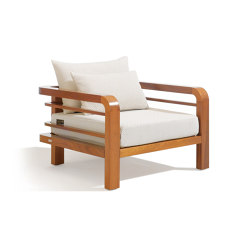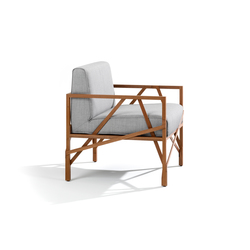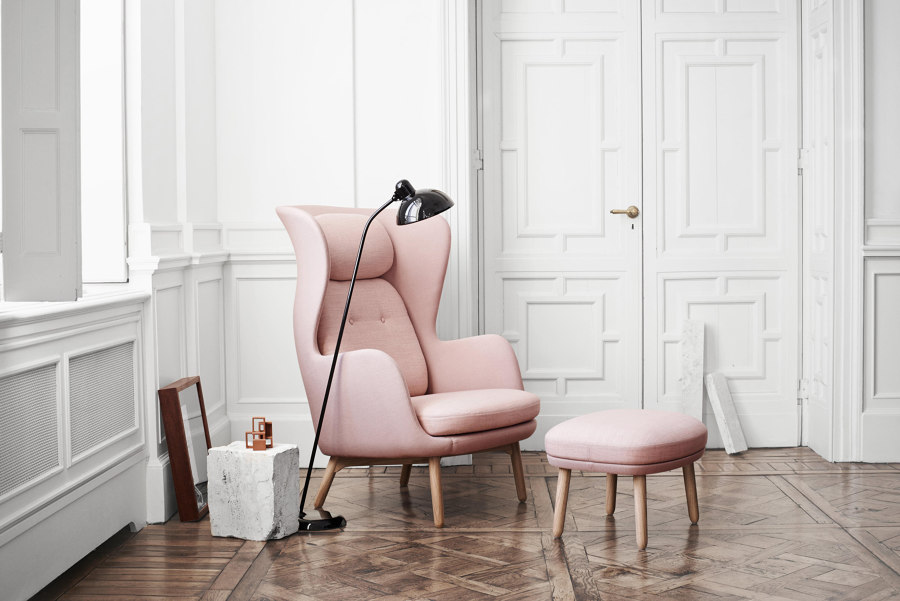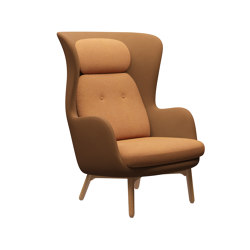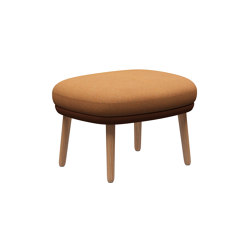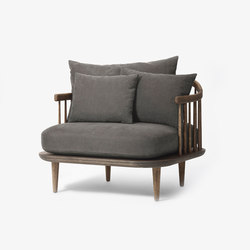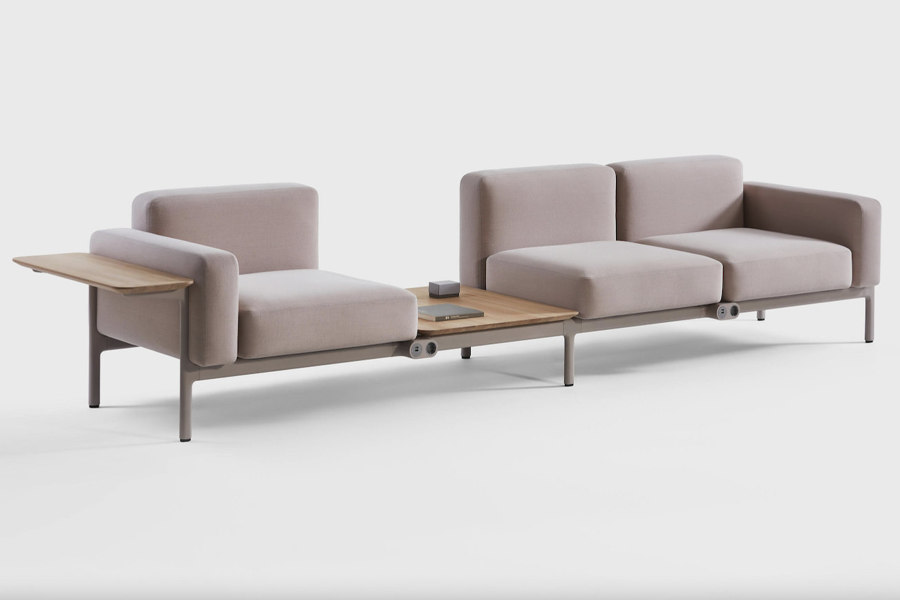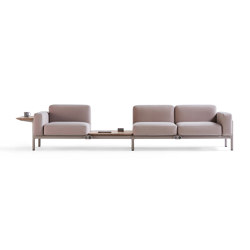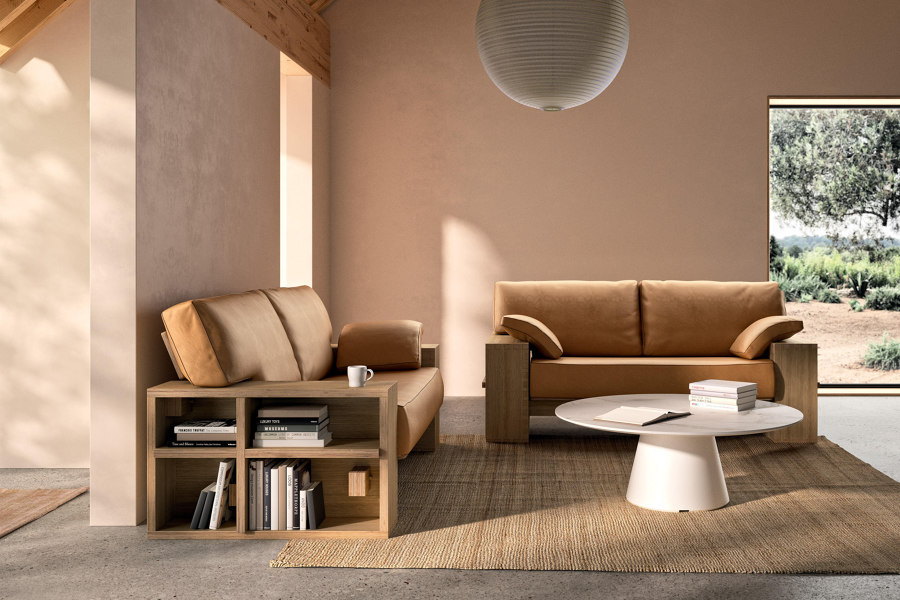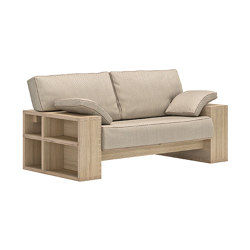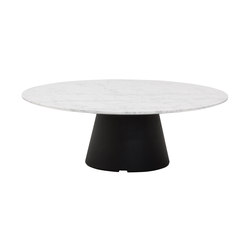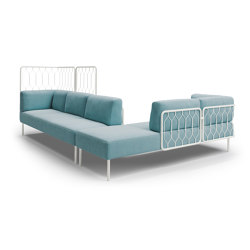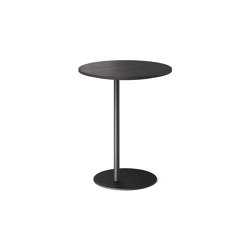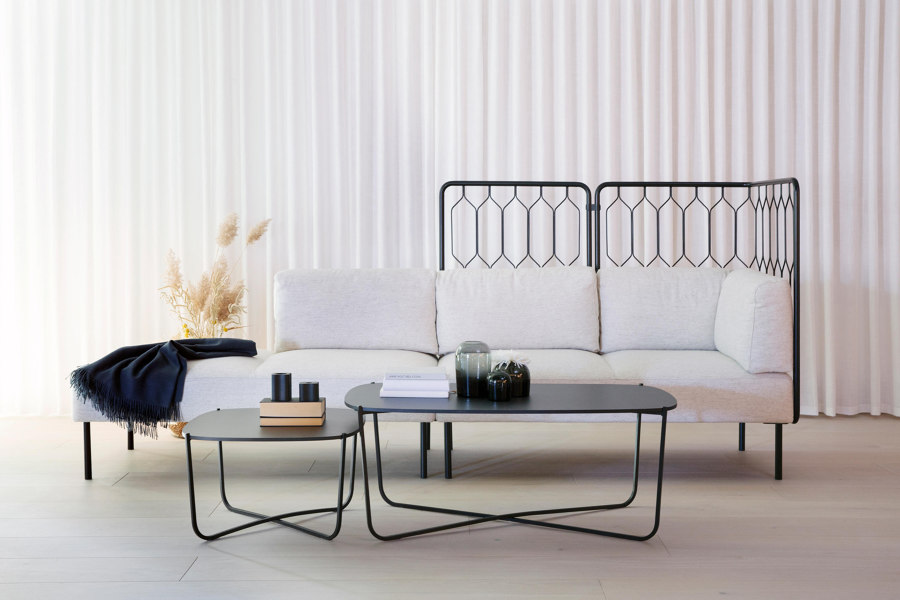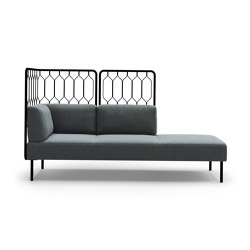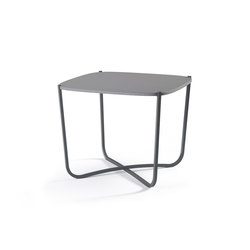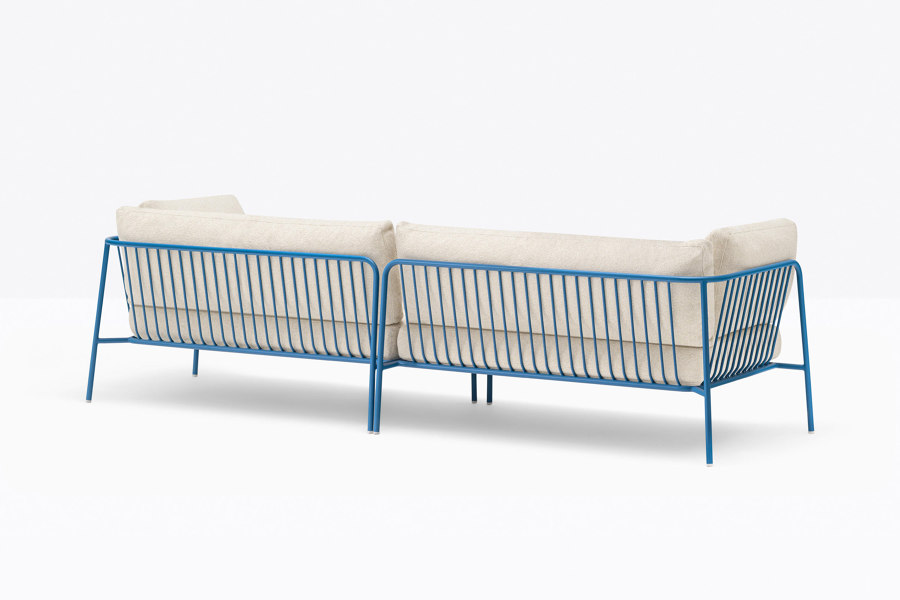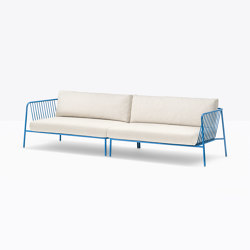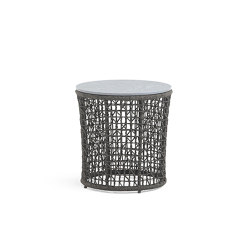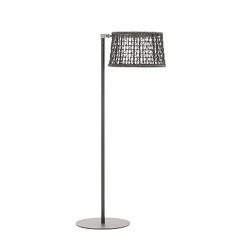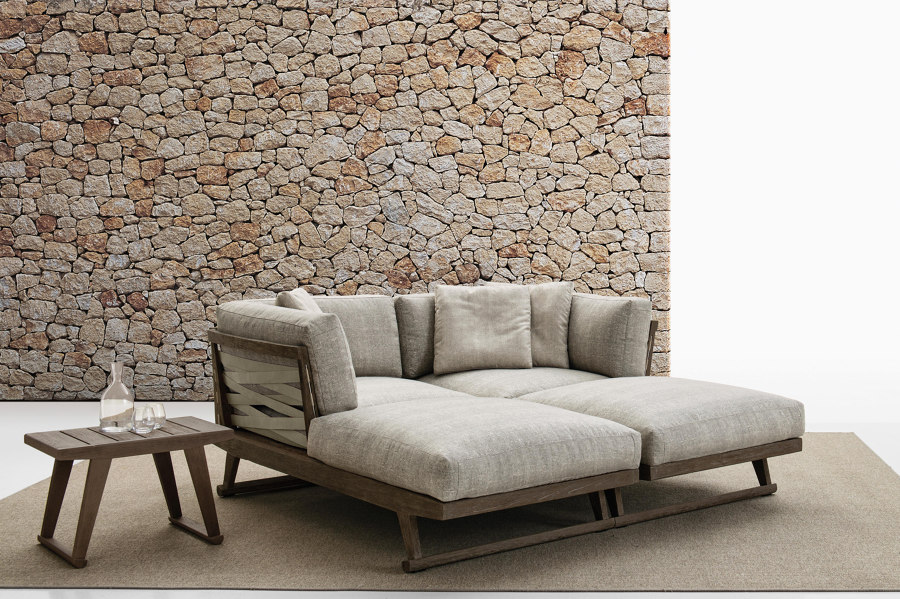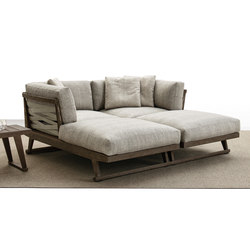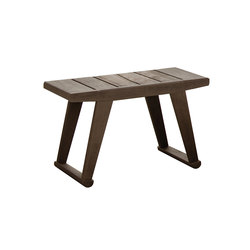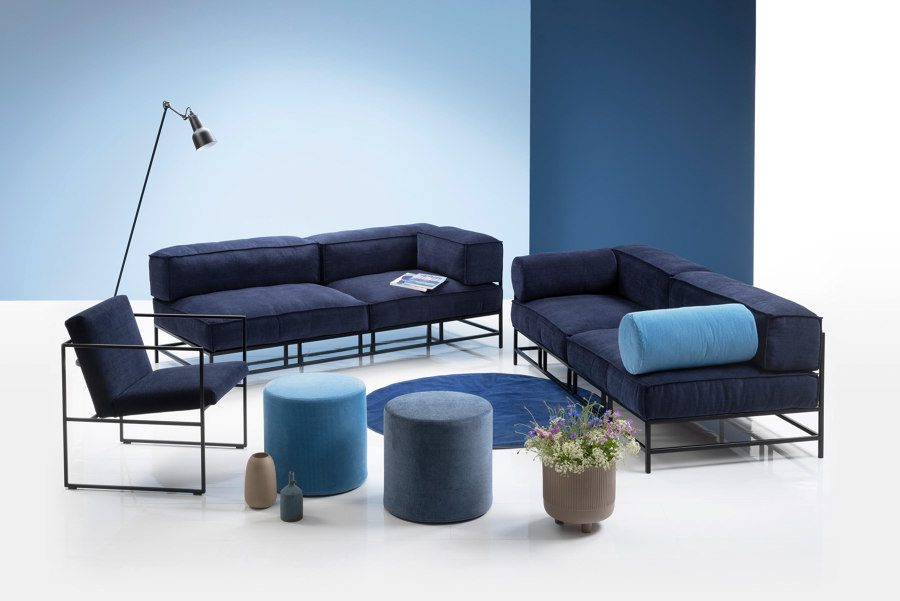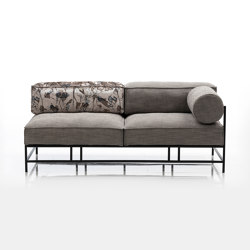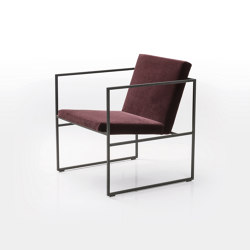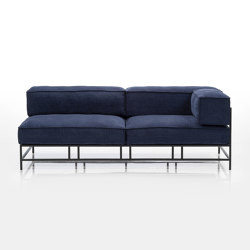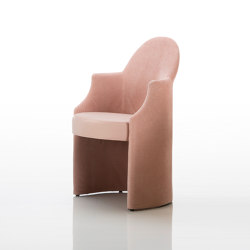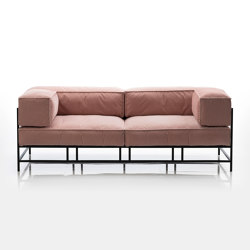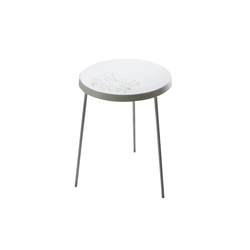Seating collections that show inner strength with exposed frames
Text by James Wormald
01.11.23
Either to show off their quality construction, for easy end-of-life disassembly, to increase their functionality or simply just for the aesthetic, these brave seating ranges bare all.
Furniture collections that wear their supporting frames on the outside like Emma Cross from Varaschin are suitable for outdoor areas, but the style is becoming popular for interior collections, too
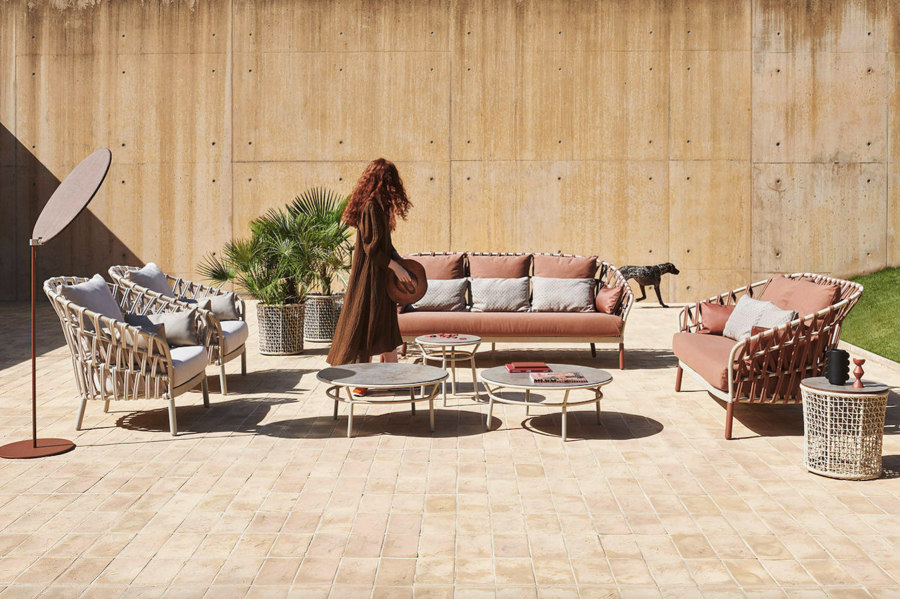
Furniture collections that wear their supporting frames on the outside like Emma Cross from Varaschin are suitable for outdoor areas, but the style is becoming popular for interior collections, too
×Although many of the highest-grade sofas and armchairs are generously draped with the velvety smoothness, rich colours and vibrant patterning of luxurious upholstery, the key to a comfortable, well-made seat comes down to the structure underneath. At its bare bones, if the strength of a chair’s base or the quality and craftsmanship of its joinery are not up to scratch its life will invariably be cut short before its time.
Consumers are looking to invest in longer-lasting pieces…
As consumers more consistently look to invest in longer-lasting furniture pieces that are more durable in style as well as construction, there’s real value in the ability to see it for oneself. With exposed legs, arms and entire frames, seating ranges that present their construction on the outside are also able to separate them. And bulky sofas and chairs – so traditionally hard to reuse, recycle or even dispose of honestly – are able to live a second life long after their first.
The strength offered by a thick or structural wooden frame is boasted by the Fully collection from Livoni 1895 (top), the retro-styled Bellagio from Seóra (middle) and the Allumette range from Röthlisberger Kollektion (bottom)
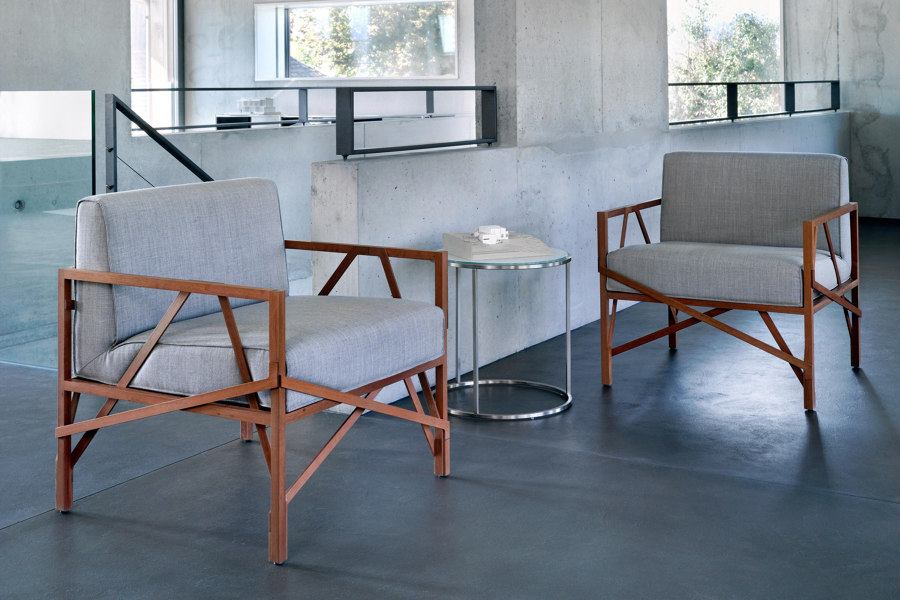
The strength offered by a thick or structural wooden frame is boasted by the Fully collection from Livoni 1895 (top), the retro-styled Bellagio from Seóra (middle) and the Allumette range from Röthlisberger Kollektion (bottom)
×A strong frame with visible construction quality
The strength of a sofa’s frame to support shifting weights and the strength of its joints to hold firm over a sustained period of use are both imperative features of quality furniture. The chunky solid beech frame of the Fully collection by Livoni 1895, for example, features strength and quality that’s easy to see with a central leg aiding support of the two-seater.
Strength of the frame and joints are imperative features of quality furniture
With the wooden frame visible, meanwhile, seating collections such as Seóra’s Bellagio range can highlight the timeless appeal of the material. Bellagio blends together varying thicknesses of mahogany hardwood with master joinery. And for a lighter look without giving up on strength, the distinctive angles found in the slim Allumette collection’s frame from Röthlisberger Kollektion, for example, make up for its lack of weight.
The natural warmth and texture of wood features heavily in many Scandinavian-designed pieces such as the legs of Ro™ from Fritz Hansen (top) and the frame of Fly from &Tradition (bottom)
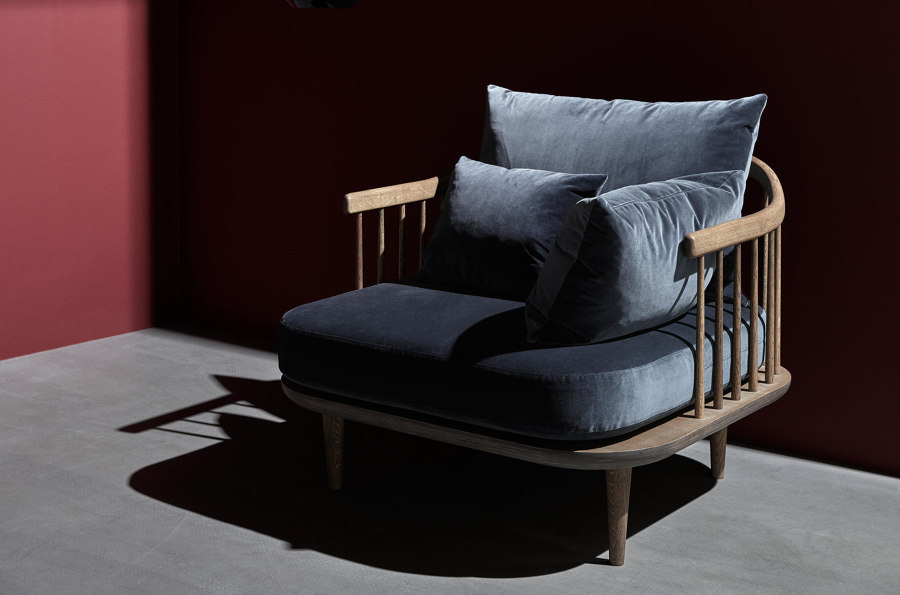
The natural warmth and texture of wood features heavily in many Scandinavian-designed pieces such as the legs of Ro™ from Fritz Hansen (top) and the frame of Fly from &Tradition (bottom)
×Highlighting materiality: Inspired by Scandinavian design
Two of the key features of the Scandinavian design style, are the use and integration of natural materials such as wood, as well as a function-led minimalist aesthetic. It’s no surprise, then, that wood plays a large part in seating collections from Scandinavian manufacturers, both as a small accent and as a major material player.
Wood plays a major part in seating collections from Scandinavian manufacturers
Even if the thought of exchanging a soft upholstered armrest for a wooden one sounds too uncomfortable to try, however, by adding just a small wooden accent such as Danish brand Fritz Hansen does with the Ro™ sofa’s legs, a natural connection is made to the chair’s construction material. But looks can be deceiving, and although the rear and arms of the Fly lounge series, designed by Space Copenhagen for &Tradition, envelop the user in oak, the manufacturer explains that because the seats include ‘loose cushions that can be arranged according to the user’s own needs,’ it is ‘optimised for comfort.’
The sturdy base frame of the Rostrum Sofa from Prostoria (top) and the thick arms of Mariya from Andreu World (middle) are utilised as storage, while the Kove from Fora Form (bottom) has a metal frame that can extend into a partition
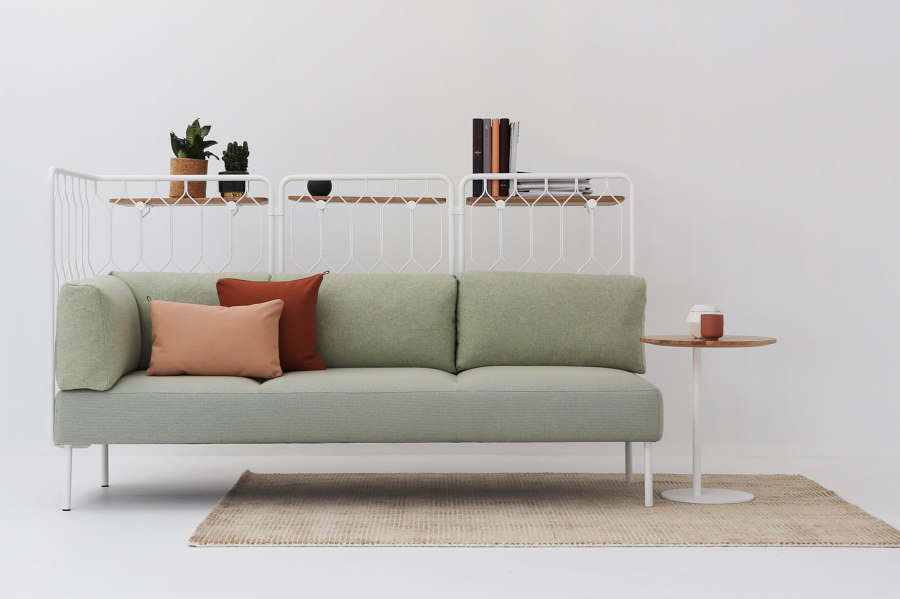
The sturdy base frame of the Rostrum Sofa from Prostoria (top) and the thick arms of Mariya from Andreu World (middle) are utilised as storage, while the Kove from Fora Form (bottom) has a metal frame that can extend into a partition
×Utilising the strength of a sofa’s frame as functional storage
For many designers, as the strength and durability of wood provide a strong base for both seating and storage, combining the two functions in one furniture piece is too good an opportunity to miss. Just as the Fly lounge series extends its wooden base to provide small side tables on either side, other series’ such as Prostoria’s Rostrum use a wooden frame as a base for a modular system that adds either cushions or side tables just as easily.
Combining seating and storage in one furniture piece is too good an opportunity to miss
The oak frame of Andreu World’s Mariya sofa, for example, by Philippe Starck, uses its thick armrests as helpfully accessible bookshelves. Inspired by wrought iron fences, meanwhile, the modular Kove collection from Fora Form instead uses a steel frame for strength, which can be raised at the back to create light partitioning.
Fora Form’s Kove (top) and Pedrali’s Nolita (middle) sofas both use powder-coated steel frames to contrast cushion and frame, while Emma Cross from Varaschin (bottom) delights by highlighting the craftwork of weaving fabric by hand
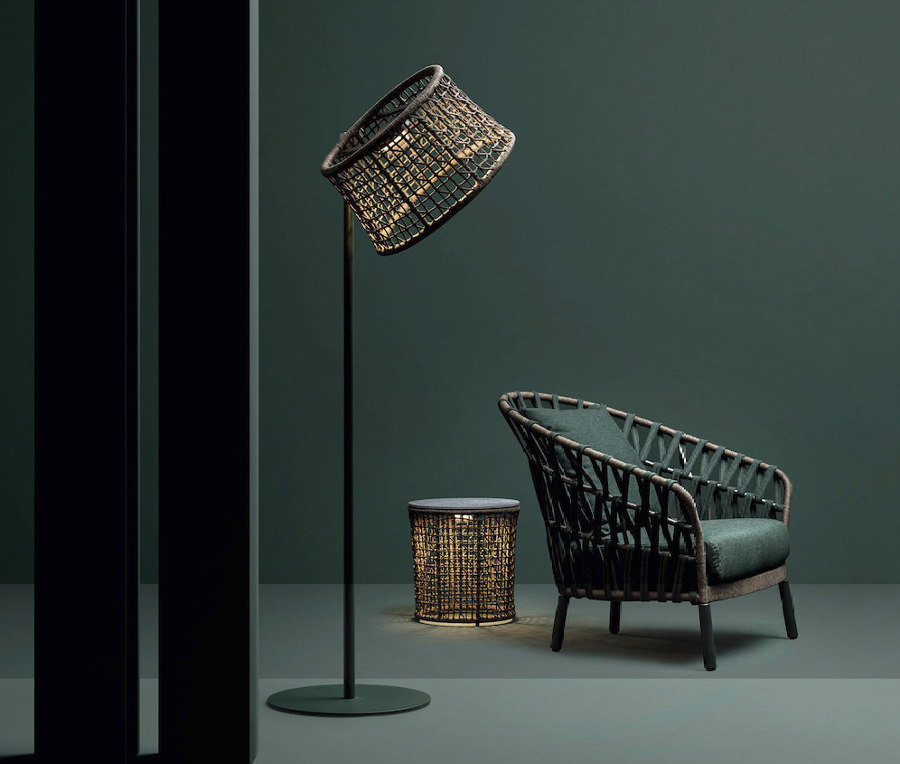
Fora Form’s Kove (top) and Pedrali’s Nolita (middle) sofas both use powder-coated steel frames to contrast cushion and frame, while Emma Cross from Varaschin (bottom) delights by highlighting the craftwork of weaving fabric by hand
×Mixing materiality for creative contrast and craft
Pedrali’s Nolita collection of outdoor sofas and chairs separates the items’ steel frame from optional waterproof cushions to ensure they can be removed and cleaned easily. But in doing so, there is an opportunity to highlight the difference in materiality by contrasting the colours. Available in a range of bright powder-coated hues, the range mixes well with neutral upholstery. Varaschin’s Emma Cross range, meanwhile, is another outdoor collection using the contrast of colour, material and also technique, to its advantage. In Emma Cross, the detail of handwoven ribbon is combined with the solidity of powder-coated aluminium.
As well as separating materials to simplify the end-of-life process, both the Gio range from B&B Italia (top) and easy pieces forever from Brühl (middle, bottom) feature frames that dismantle, helping them enjoy a longer first life
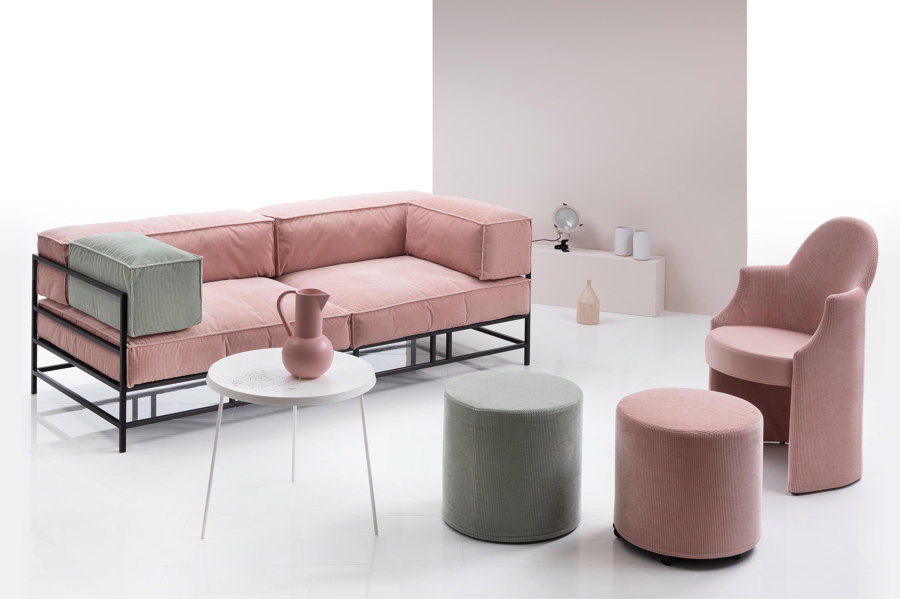
As well as separating materials to simplify the end-of-life process, both the Gio range from B&B Italia (top) and easy pieces forever from Brühl (middle, bottom) feature frames that dismantle, helping them enjoy a longer first life
×Dividing materials to sustain a life after life
‘Dedicated to living in the open air,’ as manufacturer B&B Italia introduces its Gio outdoor furniture collection, the modular construction of the range’s solid teak seating structures adds removable sides and backs to a slatted base, allowing the seats to take up less space when stored over winter.
Meanwhile, the indoor easy pieces forever seating series from Brühl follows the same concept to become a ‘sustainability milestone,’ as Brühl suggests. With a simple design of cushions on a base frame, the arrangement is easy to separate for recycling. And because the frame itself separates further into smaller pieces, it remains suited to whatever size or shape space its user requires if and when they move home.
© Architonic
Head to the Architonic Magazine for more insights on the latest products, trends and practices in architecture and design.

